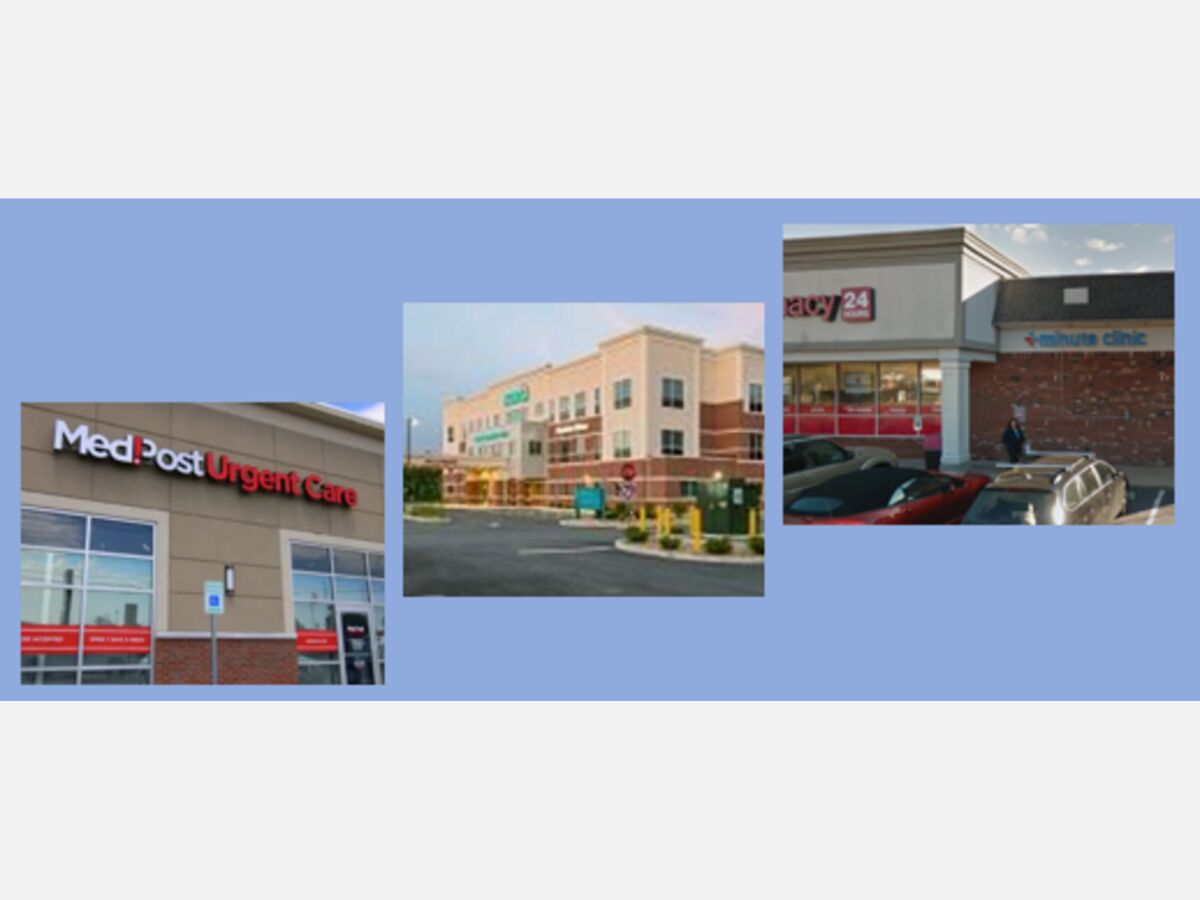Image

Leadership at the state's Health Policy Commission sees a "really important policy opportunity" in a piece of Gov. Charlie Baker's health care bill that deals with urgent care centers.
Agency staff on Wednesday presented data on the use of urgent care centers and retail clinics, exploring recent growth, the areas they serve, and the entry of large chains into the local marketplace.
There were 173 urgent care centers in Massachusetts as of last year, up from 15 in 2010. All retail clinics in Massachusetts -- there have been 59 in the state since 2018 -- are CVS MinuteClinics.
Retail clinics, located within chain pharmacies, are usually staffed by nurse practitioners and offer services including vaccinations and treatment for conditions like sinus infections. Urgent care centers have physicians and other providers on staff, and can treat things like broken bones and certain chronic conditions.
Both types of sites offer care in settings that, in many cases, can be more convenient for patients than a doctor's office or hospital emergency room, with walk-in options and extended hours available.
While a patient's cost-sharing for an urgent care center or retail clinic is similar to visiting a doctor's office, according to the HPC data, patient costs are 6 times higher for an emergency room visit. Average overall spending for a low-acuity emergency room visit is seven times higher than in an urgent care center and 10 times higher than in a retail clinic.
Of the 173 urgent care centers in Massachusetts, 78 are operated by major health systems like Mass General Brigham or Beth Israel Lahey Health, 63 are part of large chains such as American Family Care, CareWell and ConvenientMD, and 32 fall into some other category, including independent centers and those affiliated with community health centers.
The Health Policy Commission's Sara Sadownik said there is some variation around how urgent care centers bill for their services.
Standalone chains and independent centers bill only professional claims, but those affiliated with major health systems may also charge facility fees and those fees can appear to be claims for emergency room visits or visits to a hospital outpatient site, she said.
"There's a lack of standardization in the billing practices that urgent care centers affiliated with major health systems used," Sadownik said, adding that urgent care licensure and insurers' rules are similarly not standardized.
The varied practices have research and accountability implications, making it harder to track spending, and can also affect patients, Sadownik said.
"A patient may choose to visit an urgent care center instead of an [emergency department] but unexpectedly receive the same bill that they would have received at an ED when they're doing everything right, so this is an important dynamic that we wanted to highlight today," she said.
HPC Executive Director David Seltz flagged language in Baker's health care reform bill that defines urgent care services and would create a standardized clinic licensure for entities providing those services.
"This would have a tremendous benefit, both from having a standard licensure and tracking mechanism so that we know exactly where all of these urgent care centers are," Seltz said. "It would prevent the ability for these clinics to charge the facility fees, and so this is, I think, a really important policy opportunity to create some standardization that would really address some of the challenges we're facing here."
The bill (S 2774) that Baker filed in March broadly seeks to inject more resources into behavioral health and primary care, target health care cost drivers and boost access to care. While legislative leaders in both branches have expressed interest in advancing health care legislation, the focus areas are different between the House and Senate, and Baker's bill remains in the Health Care Financing Committee after an April hearing.
HPC member Patricia Houpt, the former executive director of the New England Employee Benefits Council, called the information presented Wednesday "eye-opening."
"If this happened to me and I was charged for an ED visit when I was going to one of these freestanding clinics, I would be as surprised as anyone, and I guess I shouldn't be given my experiences," Houpt said. "So I think what this points to is that we need to recommend full disclosure so that people are going in with their eyes wide open and understand what they may be exposed to in terms of costs." -- Kate Lannan SHNS